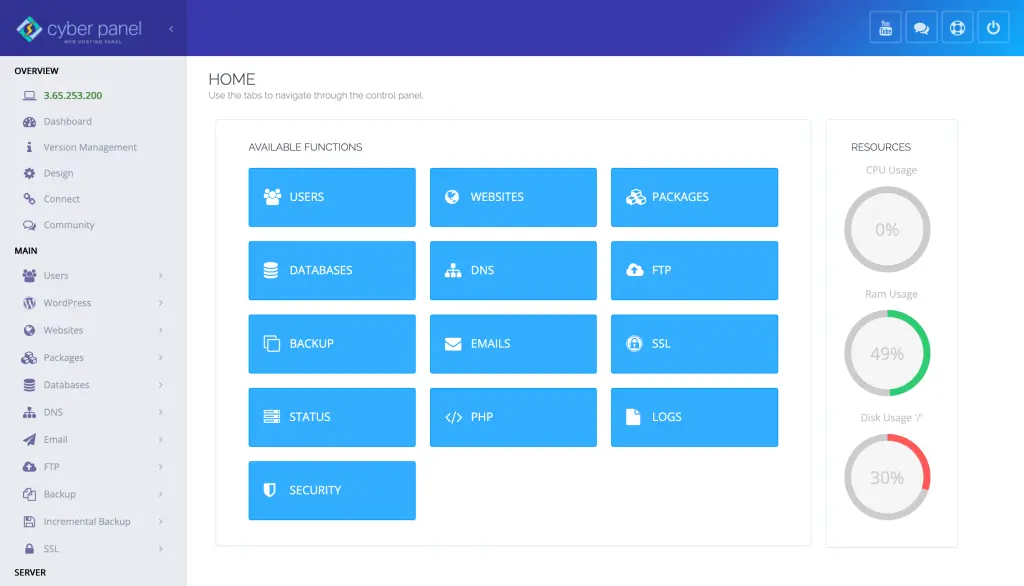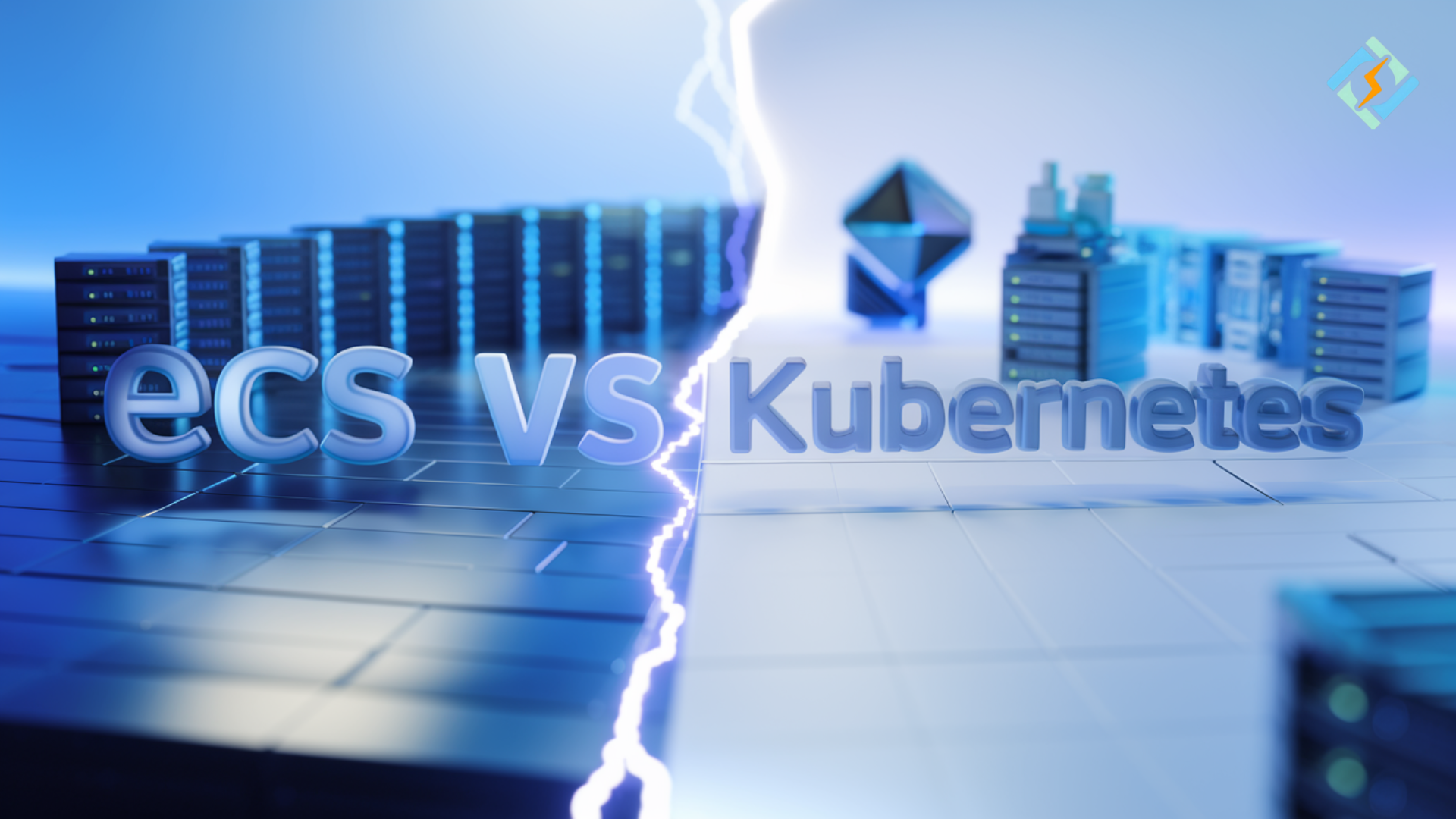Selecting the best container orchestrator makes or breaks cloud native development and production reliability. When you look at ECS vs Kubernetes AWS, it provides several options to meet different requirements. Amazon ECS (Elastic Container Service) is an AWS service that delivers simplicity, while Kubernetes is open-source software that provides flexibility and container orchestration across a cluster of hosts.
While considering kubectl vs ecs-cli is important, other factors like team backgrounds, consistent deployment, scaling requirements, pricing, and risk of locking into a provider are also worth considering: AWS is a proponent of ECS for fast, secure deployments inside its walls, while K8s lets you use a multi‑cloud approach, build rich service meshes, and leverages more community know‑how.
In this guide, we’ll take a deep look at AWS ECS vs Kubernetes, comparing features, cost, scalability, security, ecosystem, and developer experience.
What Are the Big Differences Between ECS vs Kubernetes?
ECS is an AWS-managed service with almost no configuration effort needed, and it is only available on AWS. Kubernetes is an open-source container orchestrator that provides a portable, extensible software for managing the “lifecycle” of containerized workloads with simplified platform-automation, and is more customization and management intensive.
ECS is easy and AWS‑native. Kubernetes has support for many types of application workloads, including run stateful workloads.
When to Choose kubernetes over ECS?
Choose Kubernetes when you require multi‑cloud support, require a rich and flexible ecosystem of services and tools, and want to move closer to a large open source community. What it is good for Just damn handy- for portable apps, extra platform support tools, and for building your own fangled schtuff, or any really demanding networky scheduling type service.
Get exclusive access to all things tech-savvy, and be the first to receive
the latest updates directly in your inbox.
Teams that require a bit more flexibility, including ones hesitant to go all in on AWS, should consider Kubernetes.
When to Use AWS ECS?
Go with AWS ECS if you prefer simplified deployments with minimal operational overhead, deep AWS integration (IAM, ALB, CloudWatch), and cost-effective containers. ECS is for teams that play by the AWS rules.
ECS fills the role for less complex use cases of containers within AWS.
How do deployment and scaling compare: Kubernetes vs ECS?
- ECS Deployment: Run tasks or services via CLI or AWS console. Auto-scaling integrates with CloudWatch.
- Kubernetes Deployment: Use
kubectl applywith Deployment/StatefulSet manifests. Supports rolling updates, canary deployments, and Horizontal Pod Autoscaler (HPA) .
ECS is simpler for standard scaling; Kubernetes offers complex deployment strategies and autoscaling flexibility.
How Do Networking And Service Discovery Differ in ECS vs Kubernetes?
- ECS: VPC + ENIs per task. Not many people actually do this, but if you have to (some on-premise networks like this pattern), you know where to look. — Service discovery through AWS Cloud Map or ALB/NLB.
- Kubernetes: Service and DNS as first-class citizens. Pod‑to‑pod, namespace‑to‑namespace communication becomes trivial with kube‑DNS/CoreDNS.
Kubernetes gives you better/more service discovery, whereas ECS relies on native AWS primitives.
What About Monitoring, Logging, And Observability in Both Platforms?
- ECS: Logs go to CloudWatch Logs; metrics go through CloudWatch Metrics.
- Kubernetes: Prometheus, Grafana, EFK/PLG stacks, and AWS Container Insights for EKS are supported.
ECS provides first-party AWS monitoring while Kubernetes gives you advanced observability using third‑party tools.
Which Platform is More Cost-Effective?
- ECS: Good for simple workloads with Fargate or EC2. No extra orchestration cost.
- Kubernetes: EKS has small control‑plane costs (≈$0.10/hr per cluster) + compute on EC2 or Fargate.
For small configurations, ECS costs less. It is suitable for multiple clusters large environment or k8s (self-managed), in which it may be less expensive than Kubernetes.
What is Security in ECS vs Kubernetes?
- ECS: IAM roles for tasks, VPC isolation, integration with AWS Secrets Manager.
- Kubernetes: Pod security policy, RBAC, Network Policies, secrets encryption, service mesh (Istio, Linkerd).
ECS is secure by default; Kubernetes offers more granularity for large teams.
What About Ecosystem and Community Support for Kubernetes vs ECS?
- ECS: AWS specific tools and AWS Marketplace integrations.
- Kubernetes: An overwhelming open source ecosystem — operators, CRDs, Helm, Kustomize, service meshes, CI/CD tools.
Kubernetes is more widely extensible and has been contributed to by the community; ECS is more or less tightly bound with integrations managed by AWS.
Common Challenges and Solutions in ECS vs Kubernetes
| Challenge | ECS Solution | Kubernetes Solution |
|---|---|---|
| Learning Curve | Easy – AWS handles orchestration | Steeper – requires kube-best practices |
| Vendor Lock-in | High – limited outside AWS ecosystem | Low – portable across clouds |
| Cost Management | Simpler – pay on compute usage | Precise – needs autoscaling and rightsizing |
| Custom Workloads | Limited custom behaviors | Use operators, CRDs for advanced logic |
| Security Policies | Managed via IAM and VPC | Layered with Network Policies and RBAC |
Role of CyberPanel

CyberPanel, a web hosting control panel, can work on both platforms:

- ECS: Have CyberPanel create Docker Images and push them to ECR. Triggering updates of ECS tasks on CI pipelines.
- Kubernetes: CyberPanel is able to deploy images as well as Helm charts from container registries. Deploy to EKS clusters with scripts.
This consolidates the image creation, DNS, SSL certificates, and deployment all together across both environments, while giving traditional web teams a friendly UI.
Frequently Asked Questions
Can ECS support Kubernetes features?
Some through AWS App Mesh or hooks, but none natively, the way Kubernetes does.
Can I move from ECS to Kubernetes?
Yes — export task definitions or Docker images, update manifests, and that’s that to deploy with Helm or kubectl apply.
Is Kubernetes more expensive?
EKS has control‑plane costs, but if you are smart about how you manage your clusters and clouds, it also provides a multi‑cluster, multi‑cloud freedom.
Find Your Perfect Orchestrator Today!
So, ECS vs Kubernetes, the one you should choose depends on what you want to achieve:
- Gravitate towards ECS for straightforward AWS-native workloads with low operational overhead.
- Select Kubernetes for flexibility, portability between clouds, and more advanced orchestration.
CyberPanel can provision Docker images, manage SSL, DNS, and deployments while abstracting the underlying provider from both platforms.
Ready to fast-track your container ‘aha’ moment? Choose ECS to keep it simple, or Kubernetes to add more power—both work seamlessly with CyberPanel!



